|
|
|
 |
|
 |
|
-
Project on Promotion of Investment in EE & ER (ESCO Fund), Phase 1 (October 2008 - September 2010) , Phase 2 (October 2010 - March 2013), and ESCO Revolving Fund under Fisual Year 2013 (Phase 3 : April 2013 - July 2014)
|
Phase 1
The Department of Alternative Energy Development and Efficiency (DEDE) has established the "ESCO Fund" with the objectives to encourage investment in energy efficiency (EE) and renewable energy (RE) projects and to promote greater use of energy management services provided by Energy Service Company (ESCO), which will help reduce fossil energy consumption while enhancing energy saving and reducing the energy cost of business operators in their production. In this regard, DEDE has appointed EforE one of the ESCO Fund Managers, being tasked with the issuance of a Request for Proposals and consideration of the proposals received from entrepreneurs who are interested to invest in EE and RE projects. For Phase 1 implementation, EforE has been allocated 250 million Baht from the ESCO Fund for the project management under six channels for investment promotion
As mentioned earlier, under this project, EforE has been appointed one of the ESCO Fund Managers to manage the project implementation in Phase 1, October 2008 - September 2010, with an allocated management budget of 250 million baht.
Summary of EforE’s accomplishment on ESCO Fund Phase I (October 2008 – September 2010)
|
-
A Study on Alternative Energy Utilization in the Industrial and Commercial Sectors (DEDE) (2014)
According to the Alternative Energy Development Plan (AEDP) 2012-2021, a target is set to increase the use of alternative energy from 7,413 ktoe in 2012 to 25,000 ktoe in 2021. Among available types of alternative energy, biomass, biogas and municipal solid waste (MSW) are considered potential energy sources which can be opted for energy production for use in the industrial sector. Hence, pursuant to the AEDP, it is aimed to promote power generation from biomass at a capacity of 3,630 megawatt (MW), biogas at 600 MW and MSW at 160 MW and heat production from biomass, biogas and MSW at 8,200 ktoe, 1,000 ktoe and 35 ktoe respectively by the year 2021.
In this regard, accurate and up-to-date information about alternative energy potential will ascertain the right direction of alternative energy policy planning of the government and will be useful for determining measures to promote alternative energy utilization in the industrial sector. In addition, the information can help entrepreneurs and investors with their decision making on the use of each type of alternative energy.
Therefore, the Department of Alternative Energy Development and Efficiency (DEDE) has commissioned the Energy for Environment Foundation (E for E) to undertake a project on the “Study on Alternative Energy Utilization in the Industrial and Commercial Sectors,” with the objectives to study and compile data/information about the potential of biomass, biogas and MSW for determining measures to promote alternative energy utilization in the industrial and commercial sectors; and to develop and improve the database of such alternative energy as biomass, biogas and MSW, to be modern, accurate and up-to-date.
-
Project Consultant to the Department of Energy Business on the feasibility study on the use of Dimethyl Ether as a Substitute For LPG (2013)
DimethylEther (DME) is one of the alternative fuels which many countries are developing to use as a substitute for LPG since it can be produced from various raw materials including coal, natural gas, methanol, and biomass and also the physical properties of DME are similar to those of LPG. Given that sufficient raw material sources exist in Thailand, the promotion of DME production and use as a substitute for LPG in both residential and industrial sectors will bring substantial benefit to the country.
To reinforce the energy security of the country and reduce the burden of the Oil Fund in compensating the high-cost imported LPG, the Department of Energy Business assigned the Energy for Environment Foundation (E for E) to conduct the economic and technical feasibility study on the use of DME as a substitute for LPG in Thailand. The study result will be applied for making policy on replacement of LPG which will help increase the share of alternative energy use.
-
A Study on Determination of Promotional Approach for Comprehensive Community Biomass Power Plants (DEDE) (2011)
A comprehensive community biomass power plant project means a biomass power plant project that is located in a community and of which the locality, community or a group of people in the community share the ownership and that helps generate supportive or downstream local businesses related to the power plant, such as the formation of a community business group to supply fuel, which is derived from agricultural products or agricultural residues in the community, to the power plant. Generally, the pattern of community participation in the investment will not be complicated, for instance, it may be in the form of shareholding in the community power plant business or in a supportive or downstream business related to the plant.
To determine whether the characteristics of a community biomass power plant project are appropriate, what will be taken into account is not only the community’s participation in the plant management or development, but also the benefits that local people should obtain from the plant development. The power plant must not aim merely at its optimum profits, but must consider an appropriate level of the project developer’s profits concurrently with benefit rendering to the community, which must be at an appropriate level as well.
-
Project Consultant to PTT Plc. on the study and development of bio-ethanol master plan (2010)
-
Project Consultant to the United Nations Development Programme (UNDP) on the development of renewable energy in remote areas under the UN Joint Programme (UNJP) on Integrated Highland Livelihood Development in Mae Hong Son (2010)
|
The United Nations Joint Programme (UNJP) on Integrated Highland Livelihood Development in Mae Hong Son is developed in correspondence to the UN Partnership Framework (UNPAF 2007 - 2011) for Thailand to support the government’s efforts to reduce disparities and build a more equitable society, through concerted efforts among UN agencies, to empower the most vulnerable people in society and build the capacity of people in responsible positions to fulfill their societal obligations. The UNJP will contribute to the overall goals and priority areas of the UNPAF while in particular help achieve ‘Improved livelihood for vulnerable groups in underserved areas’ as an outcome under the ‘Access to quality social services and protection’ pillar of the UNPAF Results Matrix. The UNPAF identifies five focal provinces in Thailand for joint UN collaboration including Mae Hong Son.
UNDP is one of the implementing agencies under the UN Joint Programme on Integrated Highland Livelihood Development in Mae Hong Son, which is led by Food and Agriculture Organization (FAO). Under this programme, UNDP’s involvement is to support one of the UNJP Programme Objectives, promoting sustainable natural resource management and conservation, especially in the aspect of renewable energy promotion. Key output of this Objective is that sustainable practices on natural resource management, forest conservation, renewable energy promotion, and livelihood activities are assessed, documented, demonstrated and disseminated through community participation together with local governments and civil society organizations. This project focuses mainly on renewable energy promotion in Mae Hong Son with an emphasis on key outputs, including potential off-grid, small-scale renewable energy production and application.
To implement the project activities, UNDP has assigned the Energy for Environment Foundation (EforE) to conduct the assessment, demonstration, and dissemination of sustainable practices on renewable energy. The project duration is 2 years (Jan 2011 - Dec 2012).
The purpose of this Scope of Work is to support MHS provincial office and UNDP to identify gaps and needs in the area of renewable energy while determining potential opportunities to implement new activities in accordance with the objectives of the UNJP. The project is divided into 3 phases, and the Scope of Work in each phase covers as follows:
• Phase I is an analysis of gaps and needs in the areas of renewable energy in Mae Hong Son, and further identify geographical
and technical areas of need to enable prioritization of limited resources. The analysis will include both a document
review and a field survey.
• Phase II is a work plan design, addressing those gaps and needs, and includes a set of key activities, a timeframe and
a management plan.
• Phase III is the implementation of the proposed work plan activities within the required timeframe.
Clik here for more details.
|
-
Analysis study to determine “Adder” for the purchase of power generated from renewable energy (2009)
|
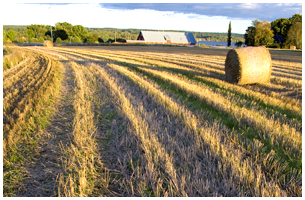 Due to the imbalance between the demand and supply of biomass fuel, the prices of easily managed biomass fuel, such as rice husks and bagasse, have rapidly increased, whereas other kinds of biomass fuel that need proper management, namely cassava rhizomes, corncobs and empty oil palm fruit bunches, have been rather underused, i.e. the share of unused biomass fuel of the latter group is over 50%. This is caused by the high management cost of the latter biomass due to their light weight and lots of mixed substances (e.g. soil, sand, gravel, etc.) and hence a high cost of collection and eventually uncompetitive power generation cost, using these kinds of biomass, when compared with fossil fuel. Therefore, in order to encourage greater use of such biomass to produce energy, it may be necessary to support the application of small-scale power generation technologies, of which the investment capital per unit is high due to the lack of economy of scale. Thus, EforE has recommended the introduction of "Adder" for individual small-scale technologies at an appropriate level, while maintaining the level of "Adder" for large-scale technologies. In this connection, the government should provide support via disseminating accurate and up-to-date information of biomass potential so that the entrepreneurs could make a proper investment decision. Due to the imbalance between the demand and supply of biomass fuel, the prices of easily managed biomass fuel, such as rice husks and bagasse, have rapidly increased, whereas other kinds of biomass fuel that need proper management, namely cassava rhizomes, corncobs and empty oil palm fruit bunches, have been rather underused, i.e. the share of unused biomass fuel of the latter group is over 50%. This is caused by the high management cost of the latter biomass due to their light weight and lots of mixed substances (e.g. soil, sand, gravel, etc.) and hence a high cost of collection and eventually uncompetitive power generation cost, using these kinds of biomass, when compared with fossil fuel. Therefore, in order to encourage greater use of such biomass to produce energy, it may be necessary to support the application of small-scale power generation technologies, of which the investment capital per unit is high due to the lack of economy of scale. Thus, EforE has recommended the introduction of "Adder" for individual small-scale technologies at an appropriate level, while maintaining the level of "Adder" for large-scale technologies. In this connection, the government should provide support via disseminating accurate and up-to-date information of biomass potential so that the entrepreneurs could make a proper investment decision.
In this regard, EforE has acted as a focal agency undertaking the study, analysis and provided views and comments, via the Energy Policy and Planning Office, on the proposed "Adder" measure of the government. In addition, EforE has been the focal point compiling comments and opinions on public policies of the entrepreneurs and presenting recommendations to concerned government agencies (ERC and EPPO) so that the latter could review and improve the policies and measures to enable practical application.
|
-
Project Consultant to OERC on the study on guidelines on the implementation of the Power Development Fund pursuant to Section 97(4) and 97(5) [of the Energy Industry Act] (2009)
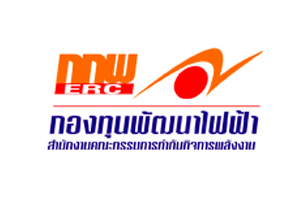
This study is aimed to develop guidelines on the implementation of "Power Development Fund" of which the objectives are: to subsidize the provision of power supply to every locality to enhance electrification across the country and to decentralize development to provincial areas; to develop/rehabilitate a local community affected by the operation of a power plant; to promote the use of renewable energy and technologies for electricity industry operation that have less impact on the environment, taking into consideration the balance of natural resources and fairness for power consumers. The implementation pursuant to Section 97(4) and 97(5) of the Energy Industry Act (2007) is specified as follows:
• Article 97(4) to promote the use of renewable energy and technologies for electricity industry operation that have less impact on the environment;
• Article 97(5) to increase knowledge, awareness and participation of the society and people in power-related issues.
EforE is currently undertaking the study to come up with recommendation on guidelines on the implementation of Power Development Fund pursuant to Section 97(4) and 97(5), including drafting of regulations, manuals and documents related to rules and regulations necessary for the implementation of the Fund under the mentioned Section.
|
-
Project Consultant to PEA developing a strategic plan on renewable energy of PEA ENCOM International Co., Ltd., and undertaking a feasibility study of renewable energy projects (2009)
|
The scope of the study covers the following:
1. Develop a five-year strategic plan for renewable energy development and investment (2011-2015), by studying and analyzing the remaining potential of each type of domestic renewable energy and then evaluating the opportunity for investment in power generation using various types of renewable energy, in which actual investment has been made, as well as the development of budget allocation plan of PEA ENCOM International Company Limited for investment in the next five years, together with the study on sources of fund, including financial support, to joint venture in renewable energy projects.
2. Study the feasibility of investment in 100 biomass power plants, using wood residues of the Forest Industry Organization (FIO) as fuel, by preparing a report on the evaluation of wood residue biomass potential of the FIO, suitable technology, the outcome of financial analysis, guidelines on fuel risk management, environment impact, the outcome of the analysis on the possibility of greenhouse gas emission reduction, including a survey on public opinions and evaluation of public acceptance in the areas where there is a potential for project development.
3. Study the feasibility and propose guidelines on investment in the project on community-based energy production stations, by undertaking the study, analysis and evaluation of the possibility of investment in the development of community-based energy production stations, including analysis of regulations, law provisions, and the approach for investment or joint ventures between PEA ENCOM International Company Limited and Local Administrative Organizations and/or the private sector that are interested to joint venture in the project on community-based energy production stations.
|
-
Project Consultant to EPPO on Load Forecast (2009)
|
Under this study, EforE developed a model to forecast electricity demand in the long term, comprising three major components, i.e. the forecast of energy demand, the forecast of peak capacity demand and the forecast of off-grid electricity demand. To start with, a forecast was made on the total energy demand under each tariff rate, based on the business/service categories and divided in accordance with responsible areas of the Distribution Utilities, i.e. the Metropolitan Electricity Authority (MEA) and the Provincial Electricity Authority (PEA). The derived outcomes comprised the forecasted overall electricity demand of the country, the forecasted off-grid electricity demand (power generation for own use and direct power purchase from private power producers), and the forecasted electricity demand from the grid system of the Electricity Generating Authority of Thailand (EGAT).
The load forecast was divided into eight categories, according to the tariff rates for each consumer category, i.e. residential power consumers, small general services, medium general services, large general services, specific business, government agencies and non-profit making organizations, water pumping for agricultural purposes, and others. A combination of forecasting methodologies is used, with the application of either end-use or econometric method. In this study, the ratio of the forecast using the end-use method and that using the econometric method was 45.7% to 54.3%. The end-use method was applied to the forecast covering the following consumer categories: residential power consumers, large general services, and specific business.
The key factor used in considering electricity demand in the models using either end-use or econometric method, was the gross domestic product (GDP) which is derived from the economic growth rate of the country. However, in the model using the end-use method, other factors are also taken into consideration, such as temperature, power tariff rates, and on-site power generation and direct power purchase from private power producers, including the effects of energy efficiency improvement of electrical equipment/appliances, and new buildings and industrial factories to be in operation in each year. In this connection, the improvement of energy efficiency will be in line with the implementation plan and the enforcement of announcements issued the Ministry of Energy.
The outcome of load forecast under each scenario reflected the impacts of individual factors/assumptions that were taken into consideration. The forecast outcomes comprised the following: the overall energy demand of the country, off-grid energy demand, grid-connected energy demand, peak demand, and outcomes of the comparison between the outcome of load forecast under each scenario and that under the Base Case scenario. The forecast outcomes indicated that the increase in temperature would result in greater electricity consumption; whereas such factors as on-site power generation and direct power purchase from private power producers, power tariff rates and energy efficiency improvement would cause a decrease in electricity demand. Overall, the most influential factor affecting the load forecast was the gross domestic product (GDP).
|
-
Project Consultant to EPPO in support of the implementation of power purchase from Independent Power Producers (2008)
-
Project on Green Energy Mechanism (2008)
|
The "Green Energy Mechanism" project was launched by E for E at the end of 2008, aiming to mobilize cooperation from state enterprises and the private sector which recognize the importance of "Corporate Social Responsibility (CSR)" in supporting renewable energy development in areas where there is no access to the power transmission system and in remote rural areas, including promoting efficient use of energy and fostering knowledge of renewable energy technology. In the long term, it is expected that the implementation could lead to the establishment of “Green Energy Market” where consumers and the private sector can opt to buy electricity generated from green energy and, concurrently, donations or money contributions can be made to support renewable energy development.
At the initial stage of the project development, in order to illustrate as an example of cooperation mobilization from the private sector, EforE used the financial support from the United Nations Development Programme (UNDP) for developing renewable energy projects, i.e. village-scale mini-hydropower plants, biogas generation from livestock farms for use instead of cooking gas (LPG), installation of small-scale wind turbines, energy efficiency improvement of Miang-leaves stoves, and solar PV system restoration including training on the system maintenance.
The "Green Energy Mechanism (GEM)" has been founded with cooperation from three parties, comprising the government, the private sector/consumers and E for E. Under this tripartite cooperation, a GEM Fund has been jointly set up and administered. A Fund Committee is formed to regulate and manage the GEM Fund derived from the private sector/consumers’ contributions in compliance with the objectives of the donors. The Department of Alternative Energy Development and Efficiency (DEDE) will accredit the participation of such donors in the project and confer the "Green Energy Mark" on the donors to be used in their public relations activities and marketing promotion. EforE will liaise with local agencies/local development organizations and will be in charge of capital mobilization for further development of the project.
Summary of EforE’s accomplishment on Green Energy Mechnism Project
|
-
Survey on consumers’ attitudes towards Thailand’s Green Energy Market (2007)
-
A study on the development of Draft Electricity Industry Act and policy guidelines on power purchase from private-sector power producers (2007)
-
Project Consultant to EPPO on the study on related laws (2007)
-
A study: Guidelines on Biomass Fuel Management for Use as an Alternative Energy (Macro Level) (2007)
|
Commissioned by the Energy Policy and Planning Office (EPPO), E for E has conducted the study on "Guidelines on Biomass Fuel Management for Use as Alternative Energy at the Macro Level," as part of the Biomass Promotion Plan under the Energy Conservation Program 2007-2011, to be used in the formulation of appropriate policy on biomass fuel management. The main objectives of the study are to identify the actual potential of existing biomass as well as the opportunity and potentiality to collect such fuel for use in power and/or heat production; to analyze the cost-effectiveness of investment, in terms of economic, social and environmental aspects; and to obtain recommendation on the guidelines on biomass fuel management, including related technology, so as to develop a market for biomass fuel trade in the future. Under this project, the study and analysis were undertaken and recommendation was made with regard to the potential, technology and supportive policy and measures that are considered suitable for biomass energy available in Thailand.
Furthermore, the implementation of this study has led to enlightenment on the recommendation of an appropriate approach to promote renewable energy development and utilization in Thailand in compliance with the government policy, which will lead to successful outcomes.
|
-
A study: Guidelines on Risk Management of Biomass Power Project Development (2007)
|
EforE conducted a study on financial instruments and the risk guarantee system relating to renewable energy project development both in foreign countries and in Thailand as well as the market condition and price of rice husks, including other biomass that can be used in place of rice husks, to be processed for the formulation of recommendation on the guidelines on risk management of biomass power project development.
From the study outcome, it can be concluded that there is an opportunity to create the liquidity of wood chip biomass. Currently, government agencies have been promoting plantations of fast-growing (short rotation) trees for dedicated use in power generation and new biomass power plants have also arranged for fast-growing tree plantations to be used as supplementary fuel. If the Dubai crude price increases to a level higher than 70 USD/barrel, which means that the power purchasing prices will not pose any barrier to biomass prices, the prices of biomass will fluctuate or change in line with the price of alternative fossil fuel, i.e. coal. Under this situation, therefore, the movement of coal price can be used as the reference index for pricing wood chip biomass in the development of biomass derivatives market in the future to serve as a risk management mechanism during the operation phase of a project.
|
-
Organization of training on “Renewable Energy” for the personnel of the Ministry of Energy, mass media and financial institutions (2007)
-
Study on the approach of electricity supply industry restructuring, engaged by EPPO (2007)
-
Submit a proposal on CDM project to the Danish Embassy (2007)
-
Consultant to EPPO on the development of price forecast of fuels used for power generation for the issuance of the notification on power purchase from private-sector power producers (2007)
-
Consultant to EPPO on the Transmission System under the study in support of the implementation of power purchase from Independent Power Producers (2007)
-
Study on municipal solid waste management in Surin Province, engaged by UNDP (2006)
-
A study on the extension of the regulations on the purchase of power from Very Small Renewable Energy Power Producers (2005)
|
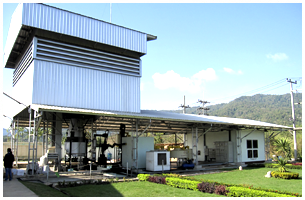 The Energy Policy and Planning Office (EPPO) commissioned E for E to conduct a study to improve and prepare draft regulations for the purchase of power from Very Small Power Producers (VSPPs) that use renewable energy as fuel in order that the outcome of the promotion of power generation from renewable energy would be tangible. In this regard, the regulations and procedures promoting renewable energy VSPPs had to be serious reviewed and appropriate financial support measures were to be devised to induce participation of investors and communities. Recommendations were also expected on the improvement or augmentation of the regulations for the purchase of power generated from renewable energy in the part of Renewable Portfolio Standard (RPS) so that it would be comprehensive and practical. The Energy Policy and Planning Office (EPPO) commissioned E for E to conduct a study to improve and prepare draft regulations for the purchase of power from Very Small Power Producers (VSPPs) that use renewable energy as fuel in order that the outcome of the promotion of power generation from renewable energy would be tangible. In this regard, the regulations and procedures promoting renewable energy VSPPs had to be serious reviewed and appropriate financial support measures were to be devised to induce participation of investors and communities. Recommendations were also expected on the improvement or augmentation of the regulations for the purchase of power generated from renewable energy in the part of Renewable Portfolio Standard (RPS) so that it would be comprehensive and practical.
The principles used for this study were to increase the volume of power sale of VSPPs to the grid to be greater than 1 MW, and to set power purchasing prices on the avoided cost basis. In this connection, additional investment subsidies could be provided for projects with high investment costs, and renewable energy power producers would be allowed to sell electricity directly to the Distribution Utilities. Moreover, the standards and costs of interconnection to the power system would be determined appropriately and fairly. Also recommended was the form of financial support provision for renewable energy technology that could not yet be applied on a commercial scale.
The outcome of this study has led to the improvement of the Regulations for the Purchase of Power from VSPPs, having the power purchase volume increased from 1 MW to 10 MW, and the revised interconnection standards requires cheaper cost. The outcome of this study has also led to the introduction of "Adder" measure – an additional energy purchasing price on top of the normal prices that power producers will receive when selling electricity to the Power Utilities.
|
-
Promotion of biogas utilization instead of fossil fuel (2005)
|
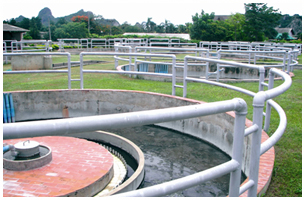 In the past, operators of industrial factories usually had wastewater treated merely to enable its disposal from their factories in compliance with the law. However, at present, technology has played a greater role in wastewater treatment, making it more systematic and efficient. As a result, apart from the derived disposed water with higher quality than the standards specified by law, the industrial operators can reduce the problems of foul smell and greenhouse gas emission to the atmosphere, and can also produce energy for use in place of fossil energy. In the past, operators of industrial factories usually had wastewater treated merely to enable its disposal from their factories in compliance with the law. However, at present, technology has played a greater role in wastewater treatment, making it more systematic and efficient. As a result, apart from the derived disposed water with higher quality than the standards specified by law, the industrial operators can reduce the problems of foul smell and greenhouse gas emission to the atmosphere, and can also produce energy for use in place of fossil energy.
Up to the present, E for E has promoted the construction of biogas systems, with financial support from the Energy Conservation Promotion Fund, by giving advice and designing the wastewater treatment system for eight slaughterhouses and two oil palm extraction plants, as follows:
1. Kanchana Fresh Pork Co., Ltd., Pak-thor district, Ratchaburi province
2. Chaipattana Farm Co., Ltd., Doi Sa-ket district, Chieng Mai province
3. Sampran Slaughterhouse Co., Ltd., Sampran district, Nakorn Pathom province
4. Siam Inter Pork Co., Ltd., Nong Chork district, Bangkok
5. Sakaew City Municipality Slaughterhouse, Mueng district, Nakorn Pathom province
6. Thammasala Municipal Slaughterhouse, Mueng district, Nakorn Pathom province
7. Surat Thani City Municipality Slaughterhouse, Mueng district, Surat Thani province
8. Proeng Ma Deu Municipal Slaughterhouse, Mueng district, Nakorn Pathom province
9. Thachana Oil Palm Co., Ltd.
10. Natural Oil Palm Co., Ltd.
|
-
A study on guidelines on promotion of power generation from wind and solar energy (2004)
|
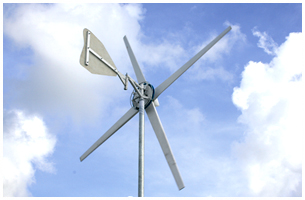 Having studied the measure on provision of financial support to biomass power projects, implemented under the Energy Conservation Promotion Fund during the past 3-4 years, EforE had noted certain defective points in the implementation and presented the following recommendations. In case the bidding method is applied to determine the level of support in the future, it is necessary that relevant terms and procedures be specified comprehensively and precisely from the beginning, with no change or modification afterwards, in order to avoid problems between concerned public agencies and project developers related to the project development. In addition, support should cover a variety of power generation technology and extra support should be given to projects which have achieved cooperation from surrounding communities. Also, distinct information of renewable energy potential should be provided as this will help prospective project developers to make a proper investment decision. Public relations campaigns, especially community-relations activities in concerned communities, should also be launched to create correct understanding of the people. Having studied the measure on provision of financial support to biomass power projects, implemented under the Energy Conservation Promotion Fund during the past 3-4 years, EforE had noted certain defective points in the implementation and presented the following recommendations. In case the bidding method is applied to determine the level of support in the future, it is necessary that relevant terms and procedures be specified comprehensively and precisely from the beginning, with no change or modification afterwards, in order to avoid problems between concerned public agencies and project developers related to the project development. In addition, support should cover a variety of power generation technology and extra support should be given to projects which have achieved cooperation from surrounding communities. Also, distinct information of renewable energy potential should be provided as this will help prospective project developers to make a proper investment decision. Public relations campaigns, especially community-relations activities in concerned communities, should also be launched to create correct understanding of the people.
In formulating policies and measures to promote renewable energy in Thailand, EforE has recommended that a combination of measures be introduced, comprising five core measures concerning/in support of the following aspects:
1. Technological development
2. Generation amount or capacity
3. Pricing
4. Taxes
5. Rules and regulations
The Energy Policy and Planning Office has used the outcome of this study in determining measures to support power generation from wind and solar energy in the form of “investment subsidy” for the development of prototype wind energy and solar PV power projects.
|
-
A study on energy consumption cost in the industrial sector to increase the competitive edge of the industrial sector, engaged by the Ministry of Industry (2004)
-
Undertook studies on biomass potential for private sector entities, e.g. Toyota Tsusho (Thailand) Co., Ltd.; Gulf Electric Plc.; and the biomass power plant project (2004)
-
Carried out a feasibility study and procured a contractor to construct a 10-MW rice husk-biomass power plant for Mung Charoen Green Power Company (2004)
-
Provide independent comments on the study report on biomass potential in the eastern region, prepared by Glow Energy Company (2004)
-
Survey on energy consumption in the jurisdiction areas of Regional Energy Offices 1-12, engaged by the Ministry of Energy (2004)
-
Consultant to Bank Thai Plc. on a project on a 7.5-MW rice husk power plant of U-thong Biomass, (2004-2005)
-
Project on Biomass One-Stop Clearing House (2001-2006).
|
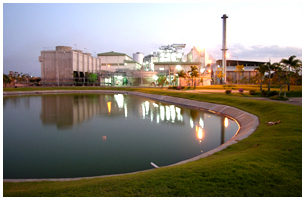 "Biomass Clearinghouse" was established in 2001 as a one-stop organisation to provide high quality and professional services to potential clients anything relating to biomass, i.e. information, promotion and utilisation. It is a part of the project called "Removal of Barriers to Biomass Power Generation and Co-generation in Thailand", which is the collaborative effort of the Energy Policy and Planing Office (EPPO), the Office of the Permanent Secretary, Ministry of Natural Resources and Environment (MONRE) and the United Nations Development Programme (UNDP). The project receives financial support from the Global Environment Facilities (GEF) and the Energy Conservation Fund as well as technical support from the Danish International Development Assistance (DANIDA). It aims to promote wider use of biomass for generating power and producing other forms of energy by providing technical advices, financial consultation, knowledge and information about biomass and policy recommendations to potential developers, interested groups, governmental agents and general public. "Biomass Clearinghouse" was established in 2001 as a one-stop organisation to provide high quality and professional services to potential clients anything relating to biomass, i.e. information, promotion and utilisation. It is a part of the project called "Removal of Barriers to Biomass Power Generation and Co-generation in Thailand", which is the collaborative effort of the Energy Policy and Planing Office (EPPO), the Office of the Permanent Secretary, Ministry of Natural Resources and Environment (MONRE) and the United Nations Development Programme (UNDP). The project receives financial support from the Global Environment Facilities (GEF) and the Energy Conservation Fund as well as technical support from the Danish International Development Assistance (DANIDA). It aims to promote wider use of biomass for generating power and producing other forms of energy by providing technical advices, financial consultation, knowledge and information about biomass and policy recommendations to potential developers, interested groups, governmental agents and general public.
|
|
|
 |
|
 |
|
|
|



